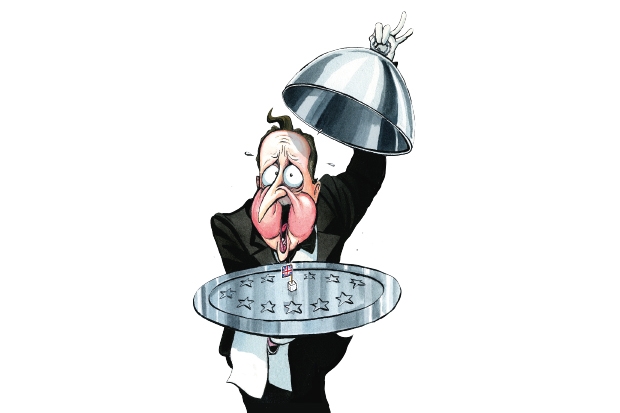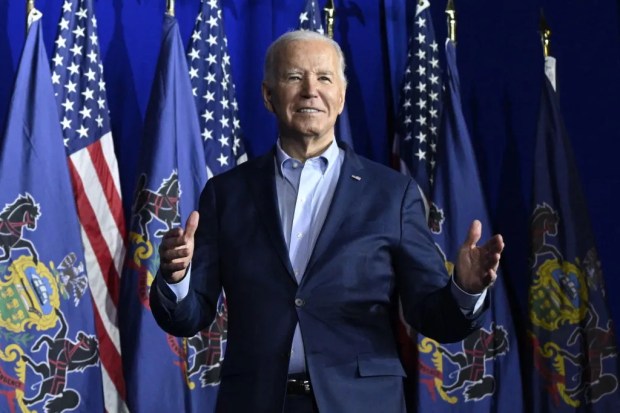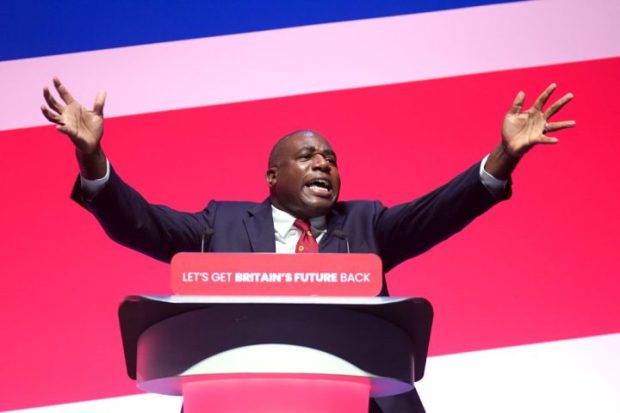It can’t be coincidence that led Olaf Scholz and Emmanuel Macron to unveil their proposals for a new class of associate membership of the EU while Keir Starmer was visiting the latter in Paris. In the Labour leader, they are presumably hoping they will find a receptive ear. With a UK election due next year and Starmer the most likely victor, Britain might yet be caught again in the EU’s tractor beam before it has really had a chance to establish itself on an independent basis.
But if the German and French leaders think they are being helpful to Starmer they may end up disappointed. Ever since he became Labour leader in the aftermath of Brexit, he has been trying to make prospective voters forget about his campaigning for Remain and then a second referendum. Now, he says there is no case for rejoining. His new ambition – and one of the main purposes for his away day to Paris – is to build what he describes as a more positive relationship between the EU and an independent Britain.
But by refloating the prospect of Britain rejoining the EU as an associate member, Scholz and Macron have forced the issue. Starmer must now respond as to whether it is something he could contemplate or not. There will be many in his party who will urge him to say yes – indeed, who would wish him to go further and announce that associate membership could be a stepping stone to Britain one day re-entering the bloc as a full member.
If the German and French leaders think they are being helpful to Starmer they may end up disappointed
But there are also a good number of potential voters Labour who fear that this is precisely what this London lawyer has in mind. A YouGov poll in July found Britons in favour of rejoining the EU by a margin of 51 per cent to 32 per cent, with the remaining one sixth of the population undecided. But more pertinent are the views of those who voted Leave in 2016. Three quarters of them would still vote Leave – even after the Tories’ lamentable failure to convert the vote into a palpable political agenda. Many of the diehard Leave voters will be in former Red Wall seats that Keir Starmer will have to win back if he is to have any chance of winning a majority.
There was a time when associate membership of the EU would have been an idea worthy of consideration, but that time has gone. When David Cameron headed off to try to renegotiate Britain’s relationship with the EU ahead of the 2016 referendum, the arrangement now suggested by Scholz and Macron could have been the basis for that relationship. It would have kept us in the single market, reduced our financial contributions while excusing us from political union. It could have been sold to the UK public as the best of both worlds.
The negotiations which followed the vote for Brexit saw the EU take an even tougher line. As the then foreign secretary Boris Johnson described in typically colourful language, the EU seemed intent on issuing ‘punishment beatings’ to Britain. This had a certain logic: the EU wants to set an example to other member states who may want to leave. But its behaviour left an unforgettable impression on voters who, as the 2019 European and general elections showed, wanted a clean break.
So it is highly unlikely that attempts to bind the UK closer to the EU will carry greater democratic consent. Indeed the voter pressure is likely to be the other way, asking why Britain is still under the jurisdiction of the dysfunctional European Court of Human Rights when we have a UK Supreme Court more than capable of upholding the values of the 1948 Human Rights Charter.
And anyway, the pieces of post-Brexit Britain are now coming in place. We will soon have a free trade deal with India, as part of an overall apparatus to strengthen links with the fast-growing Indio-Pacific area – home to half of humanity. Brexit ended the second-class status given to Americans, Indians, Australians and other non-Europeans and now they enjoy parity of status. Visa data shows employers are hiring three times more workers from India than all the EU countries put together.
Britain is, and always will be, a proudly European country – and the EU’s greatest single ally. But we are now free to lift our sights to more distant horizons and pursue our economic and strategic alliances more in line with a country linked by trade and history to every other country in the world. The idea that our future lies in being closer to the slow-growing EU is at odds with the reality of the 21st century economy.
But these pieces are still coming together. Recent deals with Japan and Australia are yet to bear fruit and the rewards of greater ties with India – such as Tata’s £4 billion car battery gigafactory in Somerset – are yet to be seen. So Scholz and Macron may have chosen now as the moment to try to draw Britain back inside the European club – before the direction of post-Brexit Britain has become clear.
Either way, their proposal deserves a polite rejection. Starmer will be wise to stick to his existing policy and rule out the question of rejoining the EU, even in associate form.
Got something to add? Join the discussion and comment below.
Get 10 issues for just $10
Subscribe to The Spectator Australia today for the next 10 magazine issues, plus full online access, for just $10.




















Comments
Don't miss out
Join the conversation with other Spectator Australia readers. Subscribe to leave a comment.
SUBSCRIBEAlready a subscriber? Log in